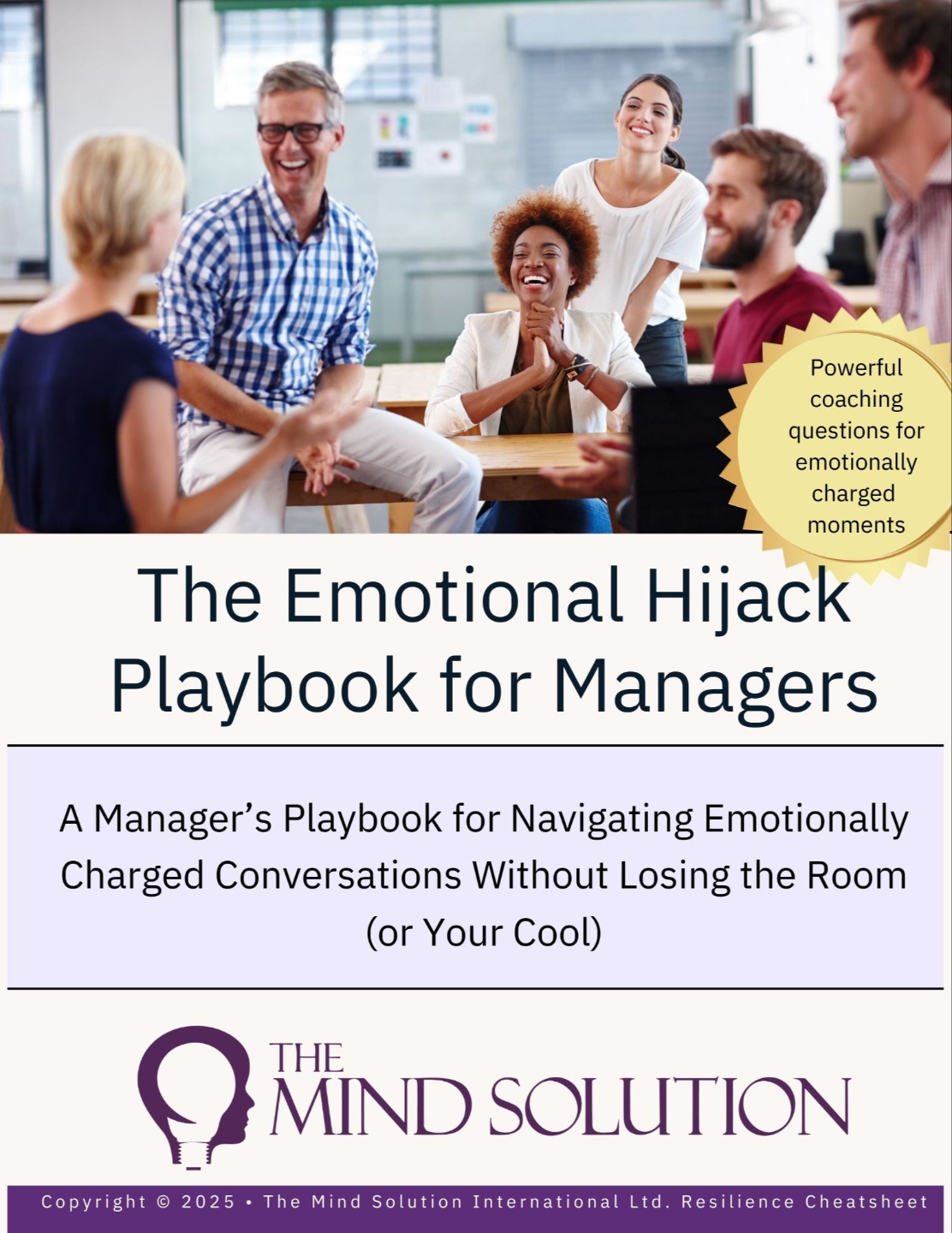Behind Burnout Is a Woman Trying to Be Enough
Oct 22, 2024
The Leadership Story No One Talks About
I still remember the excitement of landing my first leadership role at just 24 years old. I was working for Debenhams on Oxford Street, the heart of London, and I was over the moon. At the time, Debenhams was the Queen of the High Street, and I felt like I had made it. I was managing my very first team member, Mark, and I couldn’t wait to prove myself as a capable leader.
But as much as I loved my job, there was something else driving me that I didn’t fully understand at the time. Every day, I’d be at my desk by 7 a.m., feeling an electric thrill of excitement from being there early. I stayed late, was super hard on myself if I made a mistake, and consistently tried to go the extra mile.
It wasn’t until I moved into the space of coaching and psychotherapy that I learnt what was driving that behaviour: the dopamine hit from overworking. And the self-awareness behind the deeper belief that I had to prove I was good enough.
What the Dopamine Trap Looks Like in Leadership
Dopamine is the brain’s pleasure hormone. It’s the same hit you get when someone praises you, when you tick off another item on your to-do list, or when you hit an impossible deadline. But here’s the problem: it’s addictive.
Many leaders, especially women in HR and people-centric roles, fall into this cycle without even realising it. Working late becomes a badge of honour. Saying yes to every request becomes second nature. The result? Burnout. Emotional fatigue. A complete loss of clarity.
And we justify it by telling ourselves, "I just want to do a good job." But behind that drive is often a story, one that’s been running for years.
HR Burnout Isn’t Just About Workload—It’s About Identity
When I created my Emotional Intelligence Training for HR Teams programme, HR Alchemy, I did so because I wished something like it had existed back then. I wish someone had explained to me that burnout wasn’t about being weak. It was about being trapped in a version of yourself that’s always trying to prove something.
This isn’t just theory. This is something I see time and time again in our Emotional Intelligence Training for Leaders. Especially with HR professionals, imposter syndrome is a common undercurrent.
They’ve done the work. They’ve climbed the ladder. But they still feel like someone’s going to tap them on the shoulder and say, "You weren’t meant to be here."
One HR Director who joined HR Alchemy shared with me that even after 20 years in the profession, she still carried that fear.
Why Emotional Intelligence in Leadership Isn’t a “Nice-to-Have”
We’re past the point where emotional intelligence training can be seen as a nice-to-have or optional. If you want a team that performs, communicates well, and shows up with clarity and presence, this work is foundational.
Because here’s the truth:
-
People don’t burn out because they can’t cope. They burn out because they’ve been operating from survival mode for years.
-
People don’t need more strategy—they need more self-awareness and consciousness
That means emotional regulation. Awareness of your triggers. Rewriting the beliefs that are quietly driving over 90% of your behaviours.
Where It All Begins: Childhood Conditioning and Workplace Patterns
Through thousands of one-to-one sessions, I’ve seen this play out:
-
High-achieving women who know they’re capable, but can’t feel it.
-
Leaders who deflect praise, second-guess their performance, and can’t switch off—even when the job is done.
-
HR professionals who are the go-to support for everyone else, yet have no space held for them.
This isn’t about mindset hacks. This is about identity. Emotional intelligence starts when we understand that our internal experience shapes our external performance, not the other way around.
Why Imposter Syndrome Treatment Isn’t Just for Individuals
We often think of imposter syndrome as a personal problem. But what if we reframed it as a cultural indicator?
If your HR team or leadership team is full of smart, capable women constantly doubting their worth, something needs to change at the systemic level.
In HR Alchemy, our hr leadership development program, we address this directly. We create space for HR professionals to:
-
Explore the emotional conditioning behind their current behaviours
-
Learn how to shift from survival to self-leadership
-
Integrate new ways of responding under pressure
And the ripple effect is extraordinary.
What Happens When Leaders Heal This
When emotional intelligence training goes beyond the superficial, here’s what becomes possible:
-
Teams feel safer, more connected, and more open to honest conversations
-
HR professionals stop absorbing everyone else’s emotions and start operating from energetic sovereignty
-
Burnout becomes the exception, not the norm
-
Leaders stop needing to “prove” and start showing up with grounded, quiet confidence
This Isn’t About Affirmations—It’s About Embodiment
You can say, “I’m enough” all day long. But if your nervous system is in fight-or-flight, your subconscious won’t believe you.
True emotional intelligence is embodied. It’s rewiring how you show up. It’s regulating your system so that feedback doesn’t feel like a threat. It’s building capacity to hold pressure without crumbling beneath it.
And yes—it’s a skill. One that can be taught, trained, and embedded at scale.
Final Thought: Reclaim Your Power, Rewrite the Pattern
If you're an HR leader reading this and something is resonating, know this:
You’re not the only one who has felt this way.
You’re not alone in navigating pressure, perfectionism, or the quiet undercurrent of self-doubt.
But you don’t have to stay stuck in it.
Ready to lead from self-trust, not self-doubt?
If your organisation is serious about emotional intelligence training for leaders, the kind that transforms cultures, let’s talk.
👉 Book a call now and discover how our training shifts identity, not just behaviour.
The Emotional Hijack Playbook For Managers
A Manager’s Free Resource for Navigating Emotionally Charged Conversations Without Losing the Room (or Your Cool).
Perfect to use in your next one-to-one.







